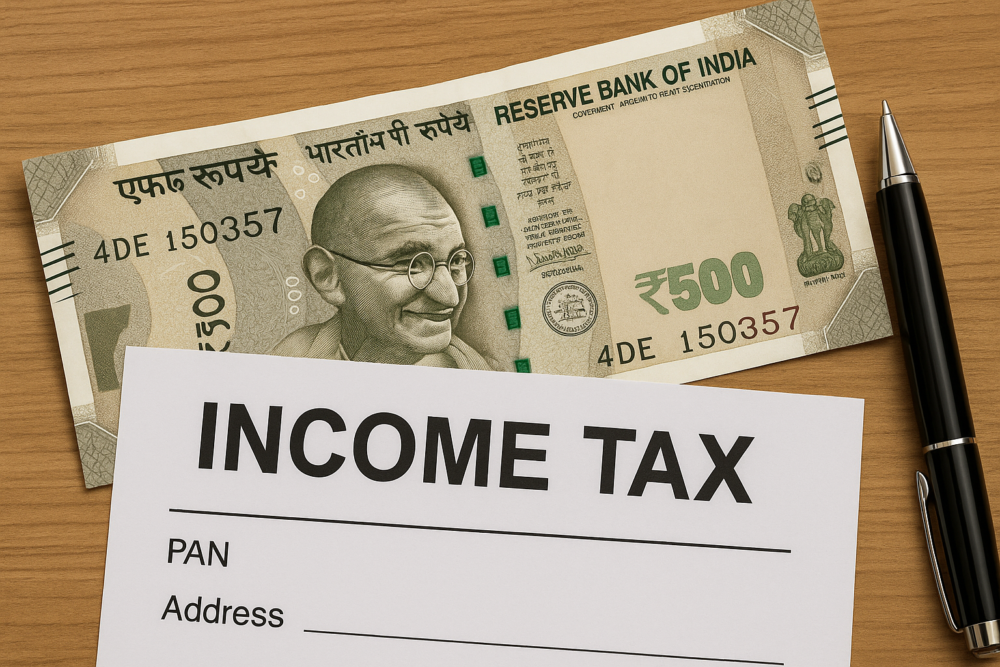Income Tax Return Filing 2025: Key Updates for Salaried Employees
In a major development that brings relief to millions of salaried taxpayers across the country, the Central Board of Direct Taxes (CBDT) has officially extended the deadline for filing Income Tax Returns (ITRs) for the financial year 2024-25 (assessment year 2025-26). The new deadline is now September 15, 2025, replacing the earlier date of July 31, 2025.
This extension applies to individuals not subject to tax audit, a category that primarily includes salaried employees. The CBDT’s recent notification follows multiple representations from taxpayers and professionals requesting more time to file due to systemic delays and technical challenges.
Why the Extension Was Granted
The government’s decision was influenced by two primary factors: the delay in the release of updated ITR forms and e-filing utilities, and the sluggish reflection of TDS (Tax Deducted at Source) data in Form 26AS and the Annual Information Statement (AIS). These tools are essential for accurately filing tax returns, and their unavailability had created widespread concern.
Tax practitioners noted that inconsistencies or delays in TDS data can lead to mismatches and errors in the filed returns. A mismatch could trigger unnecessary scrutiny or delays in refunds. The additional time allows taxpayers to ensure that all pre-filled information is accurate and up to date before submission.
Caution: Self-Assessment Tax Still Due by July 31
While the deadline for filing returns has been extended, taxpayers must still clear any outstanding self-assessment tax by July 31, 2025. Failure to do so could result in interest charges under Section 234A of the Income Tax Act. This means that even though the return can be submitted later, the government expects its dues to be paid on time.
In simple terms, if you owe tax over and above what has already been deducted or paid in advance, that amount needs to be cleared before the original July deadline to avoid additional charges.
Refund Interest: A Potential Bonus for Timely Filers
One silver lining for taxpayers expecting refunds is the interest component under Section 244A. Since refund interest accrues from April 1 regardless of the extended deadline, individuals who file now may be entitled to up to 33% more interest on their refund amounts. However, this interest is treated as taxable income and must be disclosed in the return itself.
Tax experts advise that although the extended timeline may appear to be a convenience, early filing is still preferable—particularly for those eligible for refunds. Filing early may also help taxpayers avoid potential technical issues that tend to arise on the portal closer to the deadline.
Penalties for Late Filing
Taxpayers must also be aware that filing beyond September 15 will attract penalties. Under Section 234F, individuals with total income exceeding ₹5 lakh will face a late fee of ₹5,000, while those with income below that threshold will be charged ₹1,000.
In case of an error in the original return, revised returns can be filed up until December 31, 2025. Additionally, those who miss the original deadline altogether can still submit updated returns (ITR-U) until March 31, 2030, although that route includes additional costs and conditions.
Advice for Salaried Taxpayers
Salaried individuals are urged to make the most of this extended deadline by verifying their Form 26AS, AIS, and TDS details well in advance. Early reconciliation of financial data ensures accurate return filing and minimizes the risk of notices or delays.
The extension is a welcome step, but it should not encourage complacency. The Income Tax Department’s e-filing portal tends to face heavy traffic close to the due date, which can lead to last-minute complications.
Bottom line: File early, pay any due tax by July 31, and ensure all documents are cross-checked to avoid penalties or interest later.








